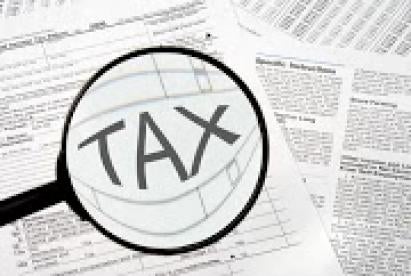Great news! You have been granted stock in a company. Bad news: that means you are going to owe taxes. If you were granted restricted stock in a company you will want to (quickly) think about filing a Section 83(b) election.
Taxes? I Don't Like Taxes.
When a person has income he or she (almost certainly) will have to pay federal income taxes on the income. An individual's ordinary income tax rate will depend on his or her income, but it can be as high as 39.6%. However, some income can be taxed as long-term capital gains, and those rates are lower than ordinary income. The top long-term capital gains tax rate is 20%.
Most of us are used to getting paid in cash. But income tax applies to all income for services rendered, even if you are paid in property instead of stock. If your employer gives you a motorcycle instead of a paycheck, the IRS will tax you on the fair market value of the motorcycle. In the eyes of the IRS, common stock is just another form of property. When you are granted unrestricted stock, assuming you did not pay for the stock, you will have to recognize the value of the stock as ordinary income. If you are granted stock in a start-up it may not yet have a high value, so your tax liability may be relatively low. Then, years later when you sell your stock for a huge gain, you will pay the long-term capital gains rate (rather than ordinary income rate) on that increase in value.
Now here is where it gets a little tricky. It is common for people involved in start-ups, such as founders, to be granted restricted stock subject to vesting. Under the tax code the recipient of the restricted stock does not have to pay taxes on the stock until it vests. This sounds great, right? Not necessarily. When the restricted stock vests the recipient has to treat the value of the stock, at the time of vesting, as ordinary income. And assuming the stock is a lot more valuable when it vests than when it was originally granted, the person is paying a lot more taxes. Here is where the Section 83(b) election comes in.
Tell Me More about That Section 83(b) Election.
If you make a Section 83(b) election you are telling the government that rather than waiting until the stock vests you want to be taxed now, as ordinary income, on the value of the restricted stock. Then when you sell your stock after it has vested (assuming it has been at least a year since it vested), you will be taxed at the long-term capital gains rate. This could save you a lot of money if the stock value increased.
But be careful! You cannot wait long to decide whether you want to make a Section 83(b) election. You must file it within 30 days of the restricted stock grant. This is a rigid deadline, there are no extensions, so do not wait until the last minute. The election must be filed with the correct IRS service center and you must also send a copy to the company that issued you the stock. Your attorney or accountant can help you prepare the one-page election.
This Is Starting to Make Sense. But I Could Use an Example.
Let's assume you are in the top tax bracket (i.e. 39.6%). In Year 1 you are granted 1,000 shares of restricted stock that is valued at $.10 per share, for a total value of $100. If you file a Section 83(b) election within 30 days of the grant, you will pay ordinary income tax of $39.60 in Year 1 (i.e. $100 x 39.6%). If you do not file a Section 83(b) election you will have no ordinary income in Year 1.
Then assume all of your shares vest in Year 3 when the stock is valued at $30 per share, for a total value of $30,000. If you filed your Section 83(b) election you will not have to pay any taxes at this time. If you did not file your Section 83(b) election you will pay ordinary income tax of $11,880 in Year 3 (i.e. $30,000 x 39.6%).
In Year 5 you decide to sell the stock when it is valued at $50 per share, for a total of $50,000. Yay!
If you filed your Section 83(b) election, because you receive credit for the ordinary income tax you already paid on the stock, in Year 5 you will have $9,992.08 in long-term capital gains taxes (i.e. [$50,000 - $39.6] x 20%). Thus, the total tax you will have paid on the stock is $10,031.68.
If you did not file your Section 83(b) election you will also receive credit for the ordinary income tax you already paid on the stock, and in Year 5 you will have $4,000 in long-term capital gains taxes (i.e. [($50,000 - $30,000) x 20%]). Thus, the total tax you will have paid on the stock is $16,880.
Bottom Line. Should I file a Section 83(b) Election?
As you can see filing a Section 83(b) election might save you a lot on taxes, and you should discuss your specific circumstances with your tax advisor. But, if you are granted restricted stock, be sure to carefully consider your options, and do so quickly – otherwise that option will quickly disappear.



 i
i
